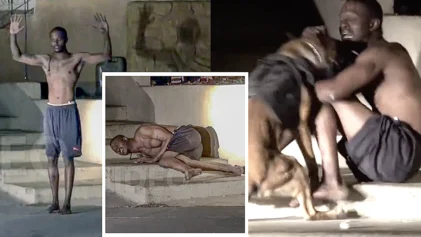The sitting king of the Netherlands recently made an official apology on behalf of his ancestors for the country’s role in the slave trade and chattel slavery during the European colonial period.
“Today, I stand before you. Today, as your king and as a member of the government, I make this apology myself. And I feel the weight of the words in my heart and my soul.” King Willem-Alexander said in a historic address in Amsterdam at the 150th commemoration of the dissolution of slavery in Suriname and the Netherlands’ Caribbean colonies.

Willem-Alexander’s remarks come in the midst of a national reckoning that was driven by a similar apology that Dutch Prime Minister Mark Rutte made last year, noting that “for hundreds of years, people were made merchandise, exploited and abused in the name of the Dutch state.”
“We carry the horrors of the slavery past with us. They are intensely experienced by me with heart and soul,” the king said. “But today, on this day of remembrance, I ask forgiveness for the clear failure to act in the face of this crime against humanity.”
The country passed a resolution to abolish slavery in 1863, but it took 10 years to fully execute in its colonies since “many enslaved people were forced to work on plantations for a decade longer to limit financial losses for the owners,” according to The New York Times.
The Guardian also reported the results of a study published last month that found that the royal house of the Netherlands, the House of Orange-Nassau, raked in about $600 million in today’s money from slavery in the Dutch colonies from 1675 to 1770, which also included profits from shares in the Dutch East India Company they were gifted.
In order to generate more transparency and continued recognition of the Netherlands’ history as traders and enslavers, the Dutch government released news late last year of a $218 million fund (200 million euros) that would be established to “increase awareness and involvement and follow-up.”
During his speech, Willem-Alexander also announced that a study would be commissioned to further research the royal family’s precise role in the country’s colonial past and the history of slavery.
The Dutch king isn’t the first European monarch or leader to apologize or express regrets for slavery.
Denmark apologized to Ghana in 2018 for its part in colonizing the nation for two centuries. In Belgium, King Phillippe also expressed his “deepest regrets” for the violence the country carried out when it ruled over Congo. Pope John Paul II apologized for the church’s role in slavery in 1992. The British royal family, including King Charles and Prince William, have expressed regret about their links to slavery, but none has ever apologized for the direct role their ancestors played.
In closing, Willem-Alexander called on his people to “build a world without racism, discrimination, and exploitation.”


